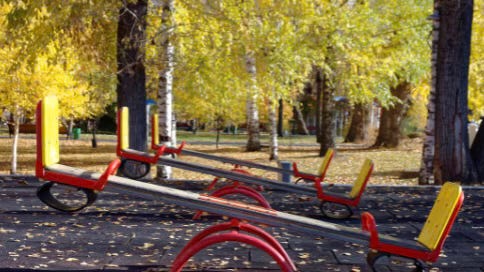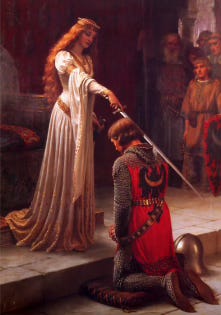I write here about the importance of allowing for uncertainty. I remind us that, usually, we don’t know the answers to life’s big questions—we only think we do.
I write about this because (a) I am, unluckily, devoted to writing and (b) uncertainty is the lesson life has taught me.
My personal trajectory has been from overly confident to humbled, from know-it-all to knows-extremely-little.
From daily force-evangelizing my poor college roommate (who was Hindu and trapped on top of a shared bunk bed with a cocksure, Bible-drill-winning southern Baptist) to squirming in church because I’m the one who doesn’t belong.
I also write these things because contemporary public rhetoric in the U.S. leans so hard into certainty and simplification that what’s missing always seems to be the nuance, the gray, the mystery. There’s humility in admitting we don’t have all the answers, that giant problems are rarely solved with a single policy or piece of legislation (or Bible verse).
But here’s a crucial irony. I call this place Between Two Things. And uncertainty operates the same as every other principle; it, too, has to be held in tension. On the other side of uncertainty (a value) are things like stability, solidity, predictability, confidence, conviction. Those, too, are values.
That’s how Between Two Things works. The need to allow for mystery doesn’t cancel out the need to hold on to what’s solid. It’s not either/or. Always, it’s both/and.
It would be easy if the opposition were between VALUE on the one end and VICE on the other. Pick the value and you’re guaranteed to be a Good Human!
If the choices were value and vice, only idiots would ever make bad choices.
But that goodness formula fails us. Two values are often in opposition. Certainty and mystery, yes—but also bravery and caution, generosity and frugality, confidence and humility.
In fairy tales (based on moral formulas), virtues are simple; the good knight always chooses bravery. Duh.
In real life, bravery can skew quickly toward recklessness. The line between confidence and bombast is oh-so-thin. Even generosity can become profligacy.
When two values are counterpoised, knowing what degree of which to champion can feel impossible.
Who wants to tell their kid a fairy tale about “the morally conflicted knight”? I mean, it’s 8pm and I’m trying to go watch Love Is Blind. Let’s make this quick.
What has struck me recently, though, is the privilege of uncertainty. I have the freedom to think in nuanced, gray ways because (at this moment) I have much in my life that is solid. I may not agree with my family members on everything, but it’s their reliability that has allowed me to venture out into uncertain territory. I am aware of this and grateful.
But for someone whose life feels profoundly unsteady (unpredictable, held together by tenuous threads that could snap at any moment), reaching for what’s solid makes the most sense. For these people, talk of intellectual gray areas might be more than off-putting; it might be terrifying.
Fear is what causes most people to double down on certainty, to lose all interest in questions and curiosity. Fear is what makes people uninterested in others’ perspectives. Sometimes that fear is imaginary (when what’s unfamiliar is always being cast as bad). Sometimes that fear is very real, doing the important job of alerting someone that more instability is unwise.
When we are made desperate by instability, we hold tight to ideas that give us a sense of stability. Conversely, when we are made desperate by the chokehold of orthodoxy or fundamentalism, we feel nuance can save us.
When we are not desperate, we know mystery and truth are two sides of the same coin.
There’s always a person or two who wants to argue with me about the importance of uncertainty. They say we need solid foundations, truths, things to believe in.
To which I always say, yes. I agree.
The human brain requires boundaries of truth and clarity to live a healthy life.
The point I’m always trying to make is that, when we are threatened, we tend to manhandle those truths. Maybe we make them simpler than they are or extrapolate to irrelevant populations and situations. Maybe we exaggerate a reality until it becomes nonsense. Maybe we build a fence around “the truth,” refusing to question or adapt, even as life contradicts what we think we know. Maybe we just hold so tight to our truths that we, usually unknowingly, exclude other people from our understanding.
I’m interested in that kernel of mystery at the center of everything.
It changes my perspective to believe I don’t know the totality of someone’s story or reasoning. It changes my perspective to believe I don’t know the totality of truth.
I also know I couldn’t do this if I were in fight-or-flight. I possess a level of security that enables me to formulate and proffer questions.
This is the tail-end of a long story, but I’m going to make an official confession. It may seem like nothing to you, but I live in the Bible Belt, and ‘round here it’s a biiiiig deal.
I can’t sit in church anymore.
I feel like my body is on fire. I sweat. My brain does somersaults.
I am not choosing this. I want to want to be there. It’s just, I have an involuntary physiological response to the display of epistemic certainty.
I’m not saying the people up there aren’t right and don’t know more than me. I just want someone to say, “I read some things. I thought about them. I had kind of a busy week, though, and this is the best I’ve got.”
Which is to say: I might learn more later.
Which is to also say: I don’t have all the answers.
Which is to also say: Life hasn’t taught me all its lessons yet.
Which is to also say: I am seeing the world through a foggy lens, just like you.
Which is: to hold certainty and uncertainty in sacred tension.
That’s what I want to do here. I don’t want to blow out the floor of your belief system, or mine. I just want to make a community of people who are willing to admit we don’t have all the answers.
We don’t know exactly which political policies will make the world a better place, every time. We can’t pin God through the thorax like a dead butterfly. Most of parenting feels like walking blindfolded through a bear-infested forest.
And that’s not a mistake or failure.
The universe seems to have plopped us down on the seesaw of a Great Paradox, one we’ll wobble around on until we eventually die.
I don’t know why it’s this way. I don’t know why we can’t pick a side and sit down and eat a freaking sandwich.
I would like to eat a sandwich. Who doesn’t want to eat a sandwich? But I have learned to trust the wobble.







"When we are threatened, we tend to manhandle those truths." Well said!
I, too, was raised in a religion built on absolutes (Mormonism for me). And letting go of them into the real flow of nuance was the best thing I ever did for myself.
Great post. So much wisdom here.
This is why I love my Lutheran church — the one whose pastor affirmed that I still had a place there even when I was becoming Buddhist. Lutherans (at least the ELCA variety) hold room for doubt, and in fact, consider it almost a necessity. I wish more traditions did! I wrote about this a couple years ago at https://louisejulig.substack.com/p/in-praise-of-doubt